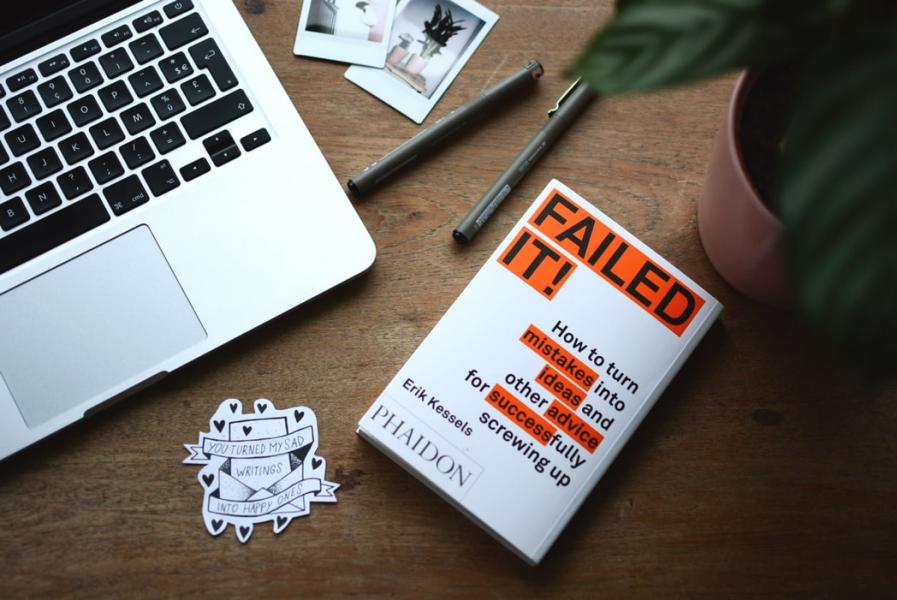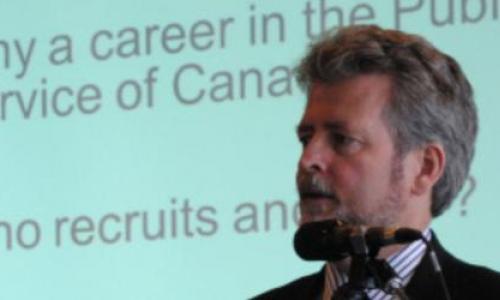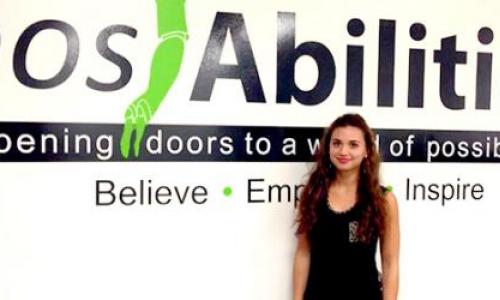
With increasing competition for co-op jobs (and jobs in general), don’t let your dream position slip through your fingers by making some easily avoidable mistakes during the application and interview process. Co-op employer Shona Taner, Coordinator for SFU International’s Field Schools and other international mobility projects, has seen her share of application packages and interviewed many students applying for co-op positions (Shona is temporarily working as the International Co-op Coordinator.) Through these experiences, she compiled a “Top 10” list of some of the most common mistakes applicants make and how you can take steps to avoid making these mistakes yourself.
10. When applying for an administrative position, you provide a résumé that includes all of your landscaping work experience (which is fine if that's all you have) and lists your skills as: Skilled in the use of lawnmowers, hedge trimmers, weedwhackers, etc… Are these skills relevant or necessary for an office environment?
Tip: Customize your résumé to suit the type of job to which you are applying. If all your work experience is unrelated, list and emphasize your transferable skills (eg: work well under limited supervision, attention to detail, etc…)
9. Your cover letter is filled with run-on sentences.
Tip: Read your cover letter out loud. If you need to gasp for breath before finishing the sentence, it’s probably a run-on sentence and could use a re-write.
8. I ask a long and detailed question at the interview and you respond with a one-sentence answer.
Tip: If an interview question is longer and more detailed, the interviewer is probably seeking a longer and more in-depth response. If the question was too long and you’ve forgotten parts of it, ask for it to be repeated. If you need time to think about it, tell the interviewer(s) that you need a moment. Don’t rush to say something – take your time to form a thoughtful response.
7. At the end of the interview, you're asked if you have any questions and you don't have any prepared.
Tip: Even if all your questions have been answered through the course of the interview, have some generic back-ups like: “how would you describe the office dynamic here?” or (if you’re being interviewed by the person you would potentially be reporting to): “what is your management style?” For more ideas of questions to ask the interviewer, visit the OLC’s Interview Question Database and click on “Questions to Ask”
6. You don't take the time to learn about the organization to which you are applying.
Tip: Many interview questions centre around the applicant having a basic knowledge of the organization. If you haven’t done your research, you can bet that your answers will make that clear to your potential employer. Take the time to research, research, research!
5. When asked "How did you prepare for this interview?", you respond, "I shaved and put on deodorant."
Tip: It’s great to be relaxed and confident in an interview, but don’t try to be over-familiar – even if you know one or more of the interviewers. Keep your attire and responses professional – regardless of the situation.
4. Your résumé and/or cover letter is riddled with grammatical errors, inconsistencies, or slang.
Tip: Just like #5, keep your résumé and cover letter professional by avoiding grammatical errors, inconsistencies in tense and slang terms. If English is not your first language, have a friend read through your cover letter and résumé. You may also want to consider booking an appointment with your Co-op Coordinator or with a Career Services Advisor to review your job application documents.
A small sample of some common errors include:
-
“a organization” – should be “an organization”
-
“We got great feedback” – should be “we received great feedback”
-
“Coordinate volunteers. Helped international students. Manage budgets.” – to keep the tense consistent, this statement should read “Coordinate volunteers. Help international students. Manage budgets” OR “Coordinated volunteers. Helped international students. Managed budgets”
-
“we rose funds” -- should be “we raised funds”
-
“interacted friendly with customers” – should be “interacted with customers in a friendly manner”
-
“for over approximately 9 years” – should be “for over 9 years” OR “for approximately 9 years”
3. You bring water with you and take a drink before answering every question.
Tip: Bringing water with you is a good idea. You will probably be doing a lot of talking and your mouth may get dry. Taking a sip of water to buy some time to think about your answer is a good tactic, but you can only use that technique once or twice before it becomes bothersome to the interviewer. Even if your answers are great, your interviewer may not remember them – but they will probably remember you as the guy or girl who kept taking a sip of water! Instead, consider asking for a moment or simply take a moment before answering.
2. You contact me to ask if your interview can be re-scheduled. I accommodate you, and then you withdraw from the competition before even interviewing.
Tip: Obviously, the person who did this did not want the job, but imagine what might happen if he or she applies for another position in the same office in the future? Remember that your actions may follow you in your future job search and just as word gets around about an outstanding applicant, the same can happen to an unprofessional applicant.
and the number one reason I won't hire you is....................
1. You indicate in your résumé that one of your skills is proof-reading and in the next paragraph you include in your list of work experiences: "Enlgish Tutor".
Tip: Remember to use spellcheck and have a friend read over your cover letters and résumés before submitting them. Sometimes, after looking at a document for too long, we miss our own errors, but a fresh set of eyes will hopefully catch any errors you may have missed. If you noticed that errors on résumés and cover letters is a recurring theme on this list, that is because one error on your cover letter or résumé can make the difference between someone considering you for a job or tossing your application immediately into the "not worth considering" pile. If you get nothing else out of this “Top 10”, remember to get someone you trust to read over your cover letter and résumé before you submit them to a potential employer.














